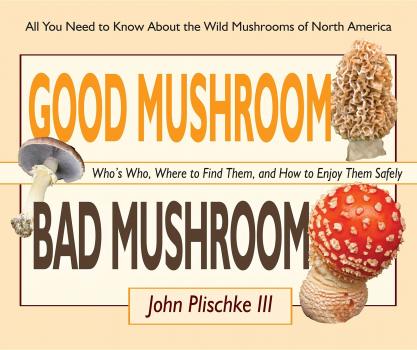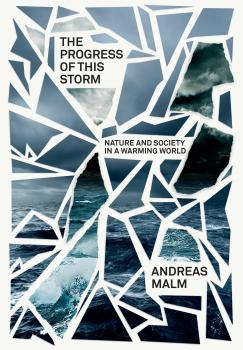Биология
Различные книги в жанре БиологияMy Dog, My Buddha
#1 New Release in Animal Behavior & Communication ─ 100 Ways to Be a Better Dog Parent What your dog wants you to know: Our furry friends reflect the love and affection we pour into them. But any pet parent who is struggling with puppy training or ongoing behavioral issues knows that it’s easy to get frustrated. My Dog, My Buddha offers one hundred life lessons that will help you build a better relationship with your pet and get the behavior you want. We get what we project: Kimberly Artley, an expert in canine psychology will teach you how to truly understand dog behavior. She knows that our dogs look to us for cues, guidance, directives, and how to feel about each and every situation they enter into. Dog care is a dialogue. My Dog, My Buddha will show you how to manage that conversation with your pet from a calm and centered place. Unlike other dog training books: My Dog, My Buddha is meant to educate, empower, and equip the human end of the leash. In this book, you’ll learn how to: Bridge the disconnect between human and canineFind personal growth through the years with your dogBuild a relationship on trust, love, and respect If you liked Training the Best Dog Ever , For the Love of a Dog , Dog Training for Dummies , or Rescued , you’ll love the empathetic approach to pet care and dog training in My Dog, My Buddha .
Like a Tree
A Powerful and Poetic Call to Ecological & Feminist Activism This masterful work by internationally known author and speaker Jean Shinoda Bolen provides an insightful look into the fusion of ecological issues and global gender politics. Of trees and women. This book on the importance of trees grew out of Bolen’s experience mourning the loss of a Monterey pine that was cut down in her neighborhood. That, combined with her practice of walking among tall trees, led to her deep connection with trees and an understanding of their many complexities. From their anatomy and physiology, to trees as archetypal and sacred symbols, Bolen expertly explores the dynamics of ecological activism spiritual activism and sacred feminism. And, she invites us to join the movement to save trees. Stories of those making a difference. While there is still much work to be done to address environmental problems, there are many stories of individuals and organizations rising up to make a change and help save our planet. The words and stories that Bolen weaves throughout this book are both inspirational and down-to-earth, calling us to realize what is happening to not only our trees, but our people. By writing about both the work of organizations like Greenpeace and the UN Commission on the Status of Women, Bolen highlights her passions and shares her unique vision for the world. In Like a Tree learn more about: The dynamic nature of trees – from their anatomy to their role as an archetypal symbolPressing social issues such as deforestation, global warming, and overpopulationWhat it means to be a “tree person” If you enjoyed books like The Hidden Life of Trees , Wise Trees , Around the World in 80 Trees , or Braiding Sweetgrass , then you’ll love Like a Tree: How Trees, Women, and Tree People Can Save the Planet .
Dams, Displacement, and the Delusion of Development
Cahora Bassa Dam on the Zambezi River, built in the early 1970s during the final years of Portuguese rule, was the last major infrastructure project constructed in Africa during the turbulent era of decolonization. Engineers and hydrologists praised the dam for its technical complexity and the skills required to construct what was then the world’s fifth-largest mega-dam. Portuguese colonial officials cited benefits they expected from the dam—from expansion of irrigated farming and European settlement, to improved transportation throughout the Zambezi River Valley, to reduced flooding in this area of unpredictable rainfall. “The project, however, actually resulted in cascading layers of human displacement, violence, and environmental destruction. Its electricity benefited few Mozambicans, even after the former guerrillas of FRELIMO (Frente de Libertação de Moçambique) came to power; instead, it fed industrialization in apartheid South Africa.” (Richard Roberts) This in-depth study of the region examines the dominant developmentalist narrative that has surrounded the dam, chronicles the continual violence that has accompanied its existence, and gives voice to previously unheard narratives of forced labor, displacement, and historical and contemporary life in the dam’s shadow.
Duck Eggs Daily
Author Lisa Steele is one of the most trusted voices in small-flock poultry keeping. Her first book, Fresh Eggs Daily, was all about healthy, natural care for chickens. Now comes Duck Eggs Daily, an equally valuable guide to raising ducks for eggs and companionship. This is also a book for chicken keepers who want to add ducks to their flock. While ducks can live happily with chickens, ducks are different in many important ways. Steele provides an information-packed, beautifully photographed how-to for raising – and living with – happy, healthy ducks. She examines every aspect of her ducks’ lives, including duck houses and pools, health care, duck behavior and blending ducks into a chicken flock. She provides a breed chart and a selection of favorite recipes using duck eggs.
Good Mushroom Bad Mushroom
Good Mushroom Bad Mushroom is a friendly, authoritative field guide to the challenges and delights of hunting and eating wild mushrooms – how to ID the edible ones and avoid the toxic ones. Mushroom expert John Plischke considers 50 of the most interesting and noteworthy mushrooms out there, with full-color photos throughout and generous helpings of mushroom recipes. An attractive gift book for beginners and old-timers alike – adults as well as curious kids – Good Mushroom Bad Mushroom features heavy matte-laminated pages and concealed-wire binding for handy use outside.
The Conservation Revolution
Conservation needs a revolution. This is the only way it can contribute to the drastic transformations needed to come to a truly sustainable model of development. The good news is that conservation is ready for revolution. Heated debates about the rise of the Anthropocene and the current ‘sixth extinction’ crisis demonstrate an urgent need and desire to move beyond mainstream approaches. Yet the conservation community is deeply divided over where to go from here. Some want to place ‘half earth’ into protected areas. Others want to move away from parks to focus on unexpected and ‘new’ natures. Many believe conservation requires full integration into capitalist production processes. Building a razor-sharp critique of current conservation proposals and their contradictions, Büscher and Fletcher argue that the Anthropocene challenge demands something bigger, better and bolder. Something truly revolutionary. They propose convivial conservation as the way forward. This approach goes beyond protected areas and faith in markets to incorporate the needs of humans and nonhumans within integrated and just landscapes. Theoretically astute and practically relevant, The Conservation Revolution offers a manifesto for conservation in the twenty-first century—a clarion call that cannot be ignored.
A Planet to Win
In October 2018, the IPCC published a report warning that the world would warm 1.5 C by 2040 without massive emissions reductions by 2030, with results more devastating than previously imagined. In November, the charismatic democratic socialist Alexandria Ocasio- Cortez won election to Congress. She stated that a Green New Deal would be a top priority. A week later, activists with the Sunrise Movement occupied Nancy Pelosi's office, calling for action on climate in the form of a Green New Deal. Ocasio-Cortez joined them, making global headlines. The Green New Deal is now a buzzword thrown around to signal the need for climate action-but no one quite knows what it means. A Planet to Win fleshes out what a Green New Deal could look like and draws the connection between climate change and capitalism, arguing that in order to confront one we must confront the other. With concrete proposals, such as ending subsidies for fossil fuel companies and funding a just transition to renewable energy, expanding public housing and transit, and a job guarantee program that emphasizes climate-friendly work, the authors offer a daring set of ideas to confront climate chaos and create a more equitable society. Recognizing that inequality and climate politics are utterly inseparable, A Planet to Win draws on the inspiring history of environmental justice movements and sets out a bold framework for the transformative possibilities of a Green New Deal.
The Progress of This Storm
An attack on the idea that nature and society are impossible to distinguish from each other In a world careening towards climate chaos, nature is dead. It can no longer be separated from society. Everything is a blur of hybrids, where humans possess no exceptional agency to set them apart from dead matter. But is it really so? In this blistering polemic and theoretical manifesto, Andreas Malm develops a counterargument: in a warming world, nature comes roaring back, and it is more important than ever to distinguish between the natural and the social. Only with a unique agency attributed to humans can resistance become conceivable.









